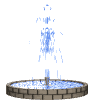| 吉林大学远程教育学院 |






|
|
|
|
|
|


|
>>>> Unit One >>>> Unit Two >>>> Unit Three >>>> Unit Four >>>> Unit Five >>>> Unit Six >>>> Unit Seven >>>> Unit Eight >>>> Unit Nine >>>> Unit Ten >>>> Unit Eleven >>>> Unit Twelve >>>> Unit Thirteen >>>> Unit Fourteen >>>> Unit Fifteen >>>> Unit Sixteen >>>> Unit Seventeen >>>> Unit Eighteen >>>> Unit Nineteen >>>> Unit Twenty >>>> Unit Twenty-one >>>> Unit Twenty-two >>>> Unit Twenty-three >>>> Unit Twenty-four >>>> Unit Twenty-five >>>> Unit Twenty-six >>>> Unit Twenty-seven >>>> Unit Twenty-eight >>>> Unit Twenty-nine >>>> Unit Thirty |
|
| 版权所有COPYRIGHT(C) 2005 DEC OF JLU |
